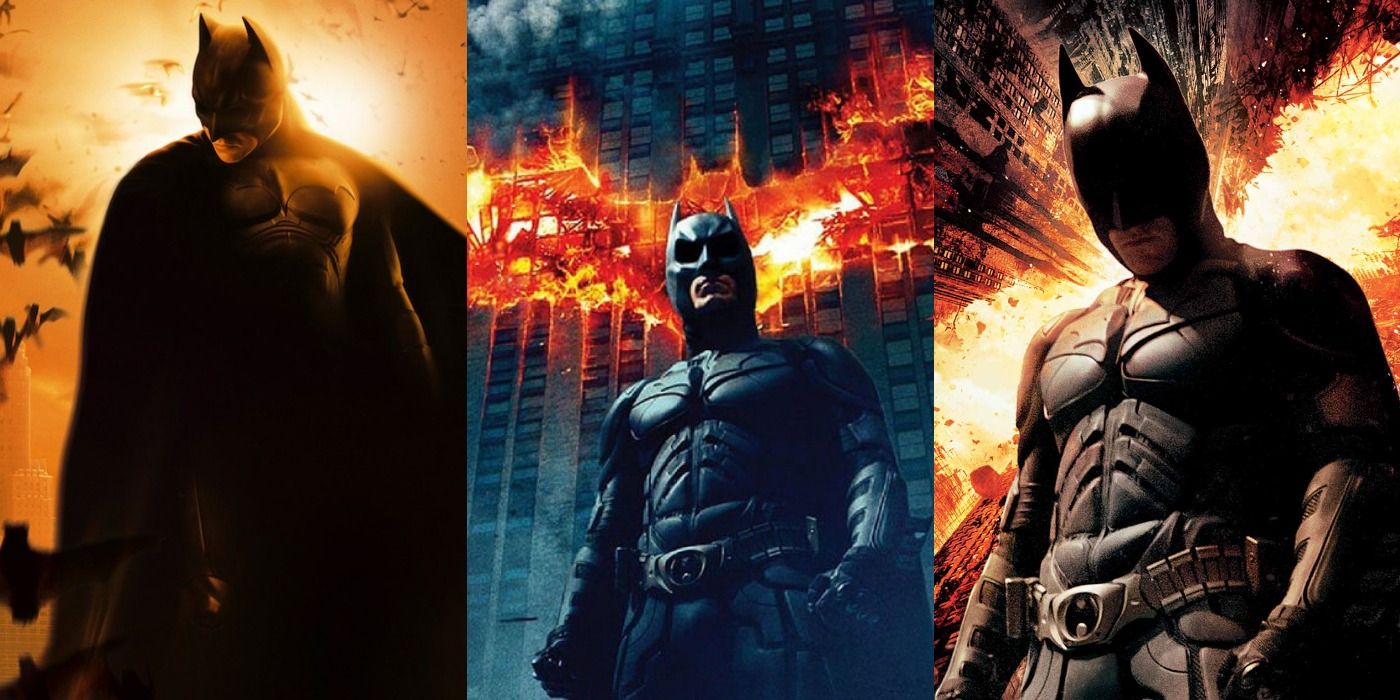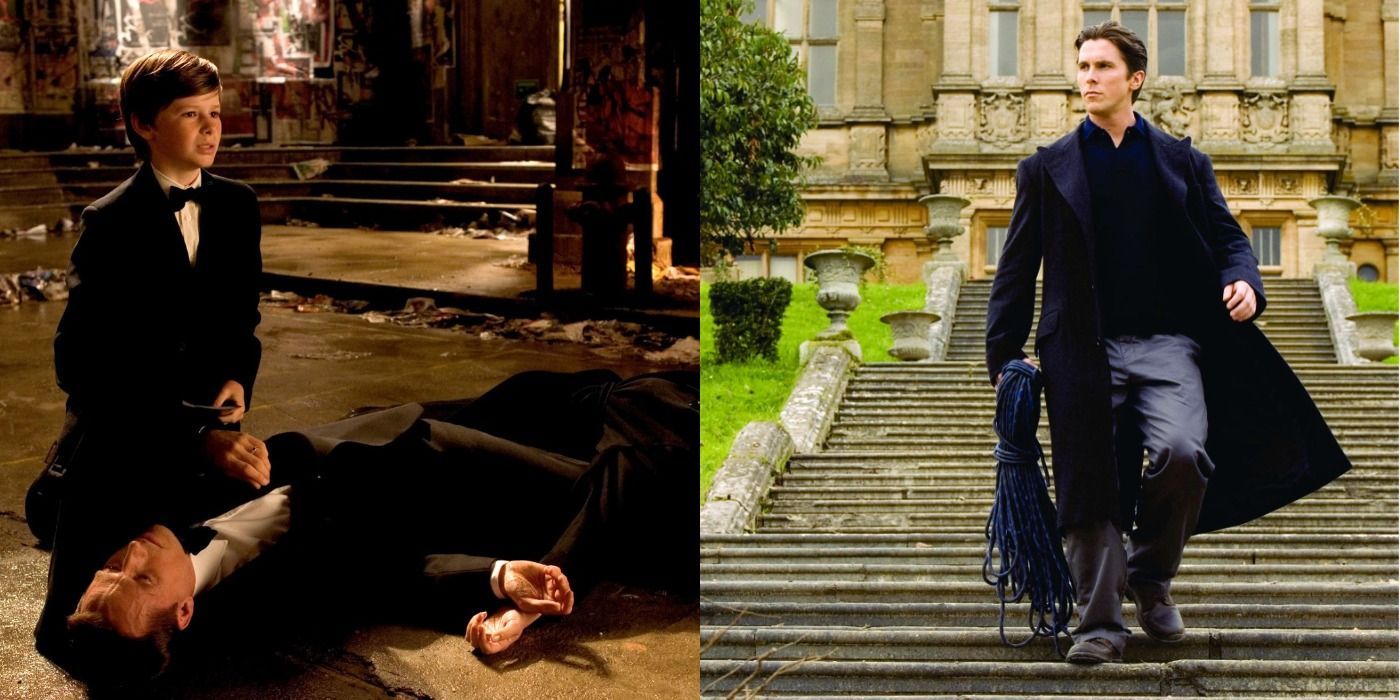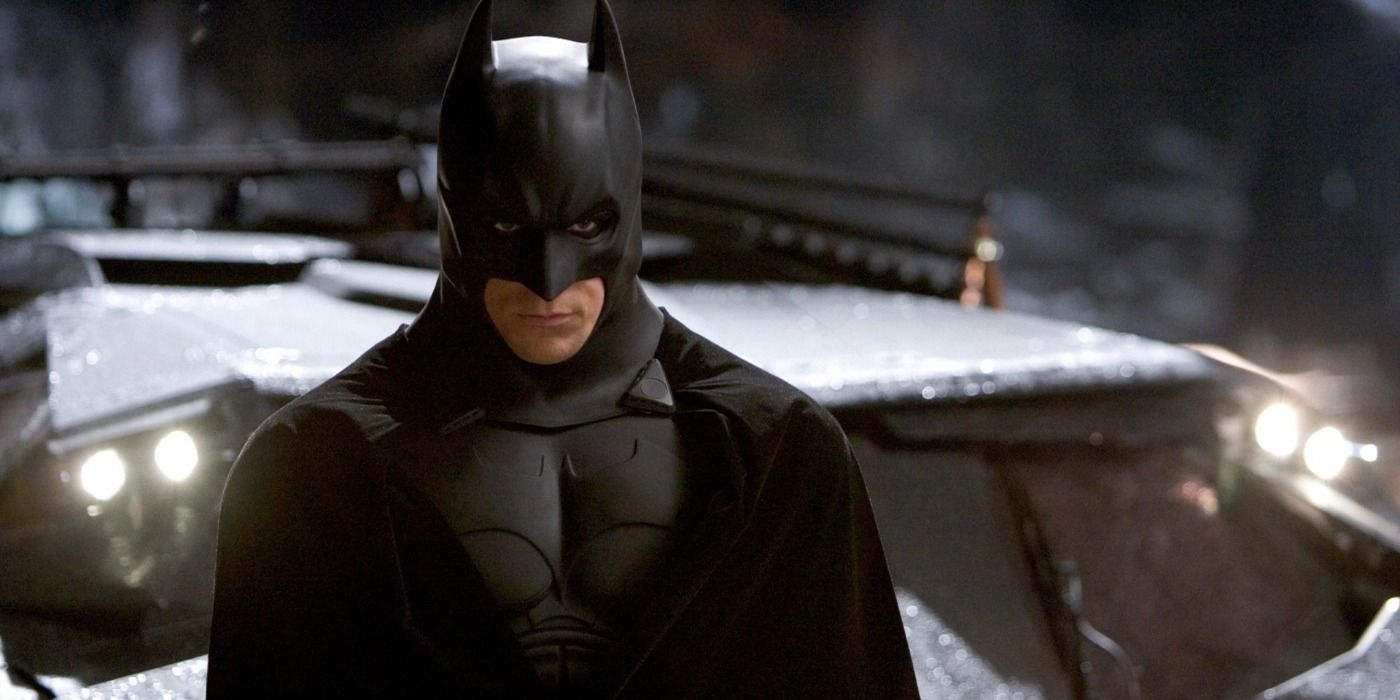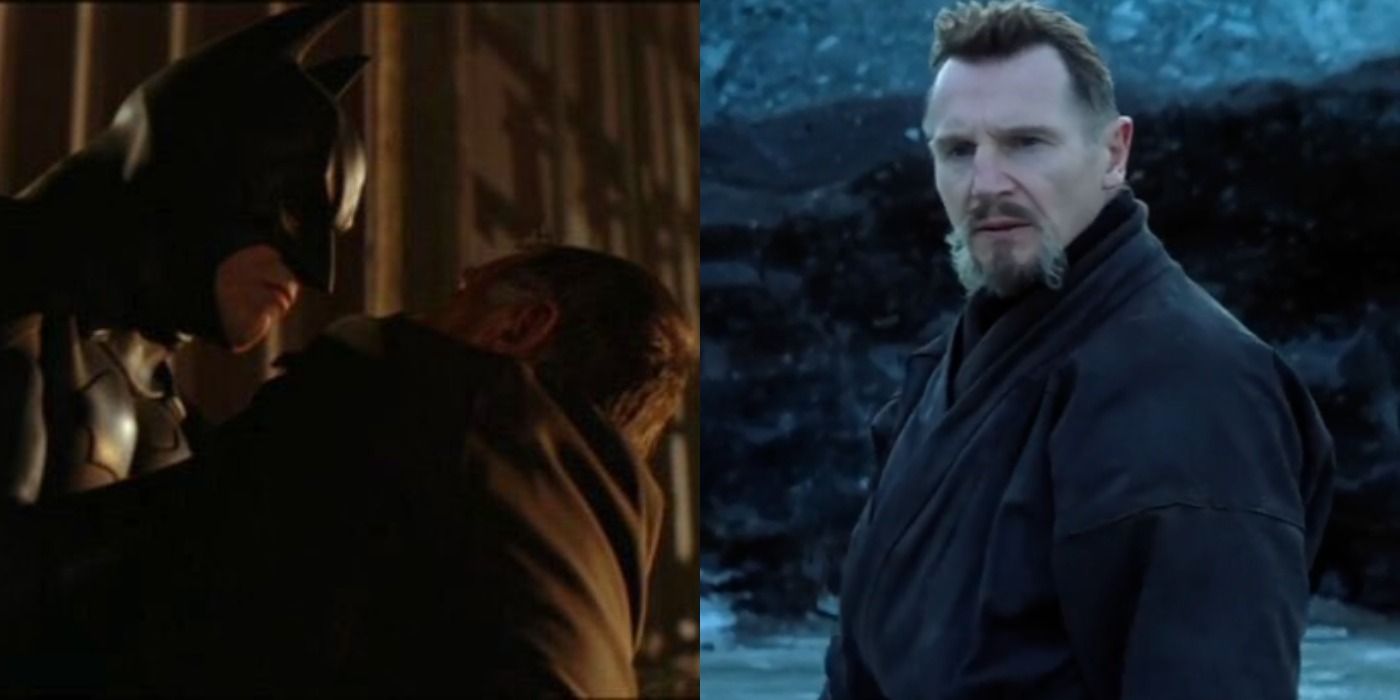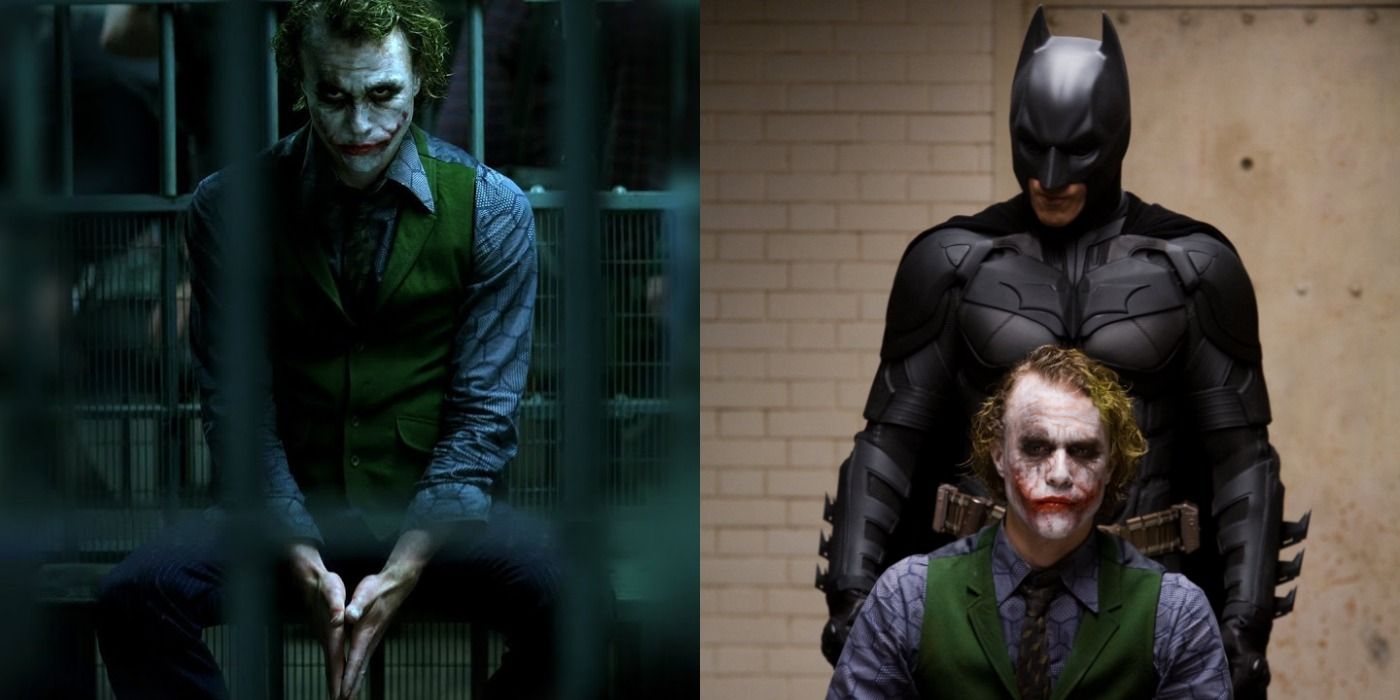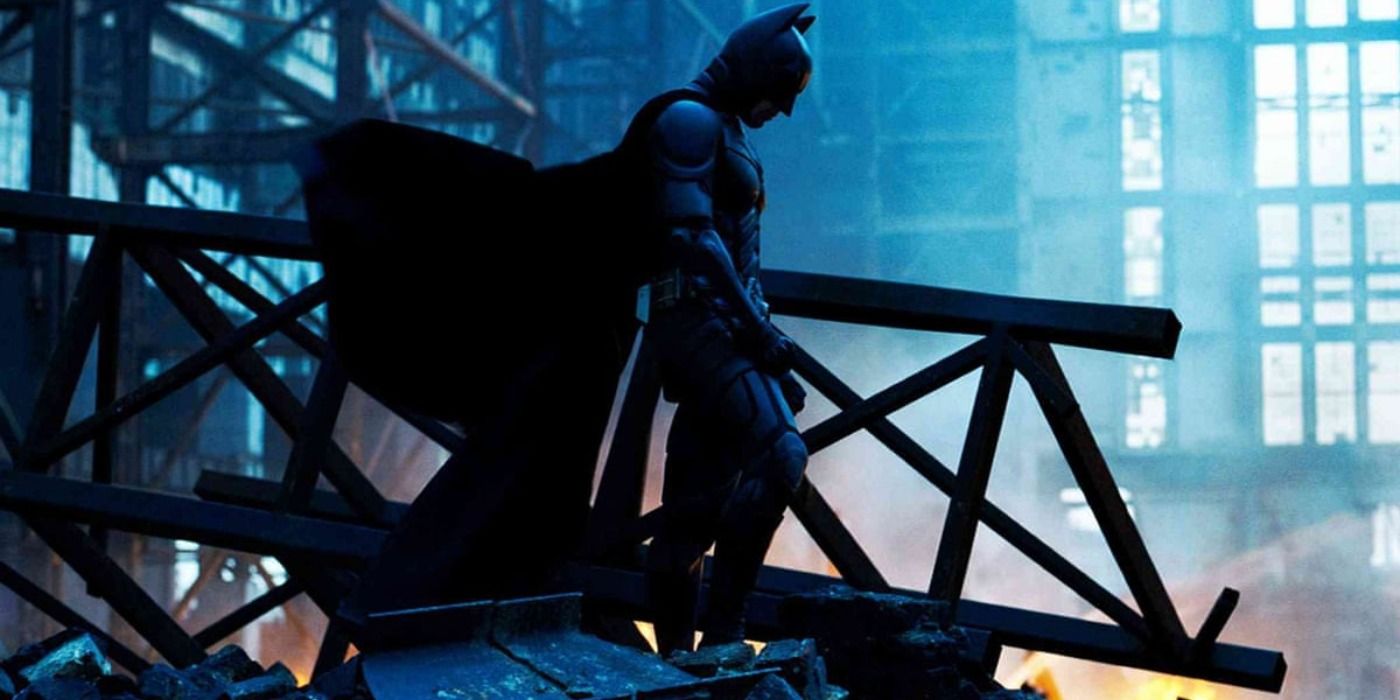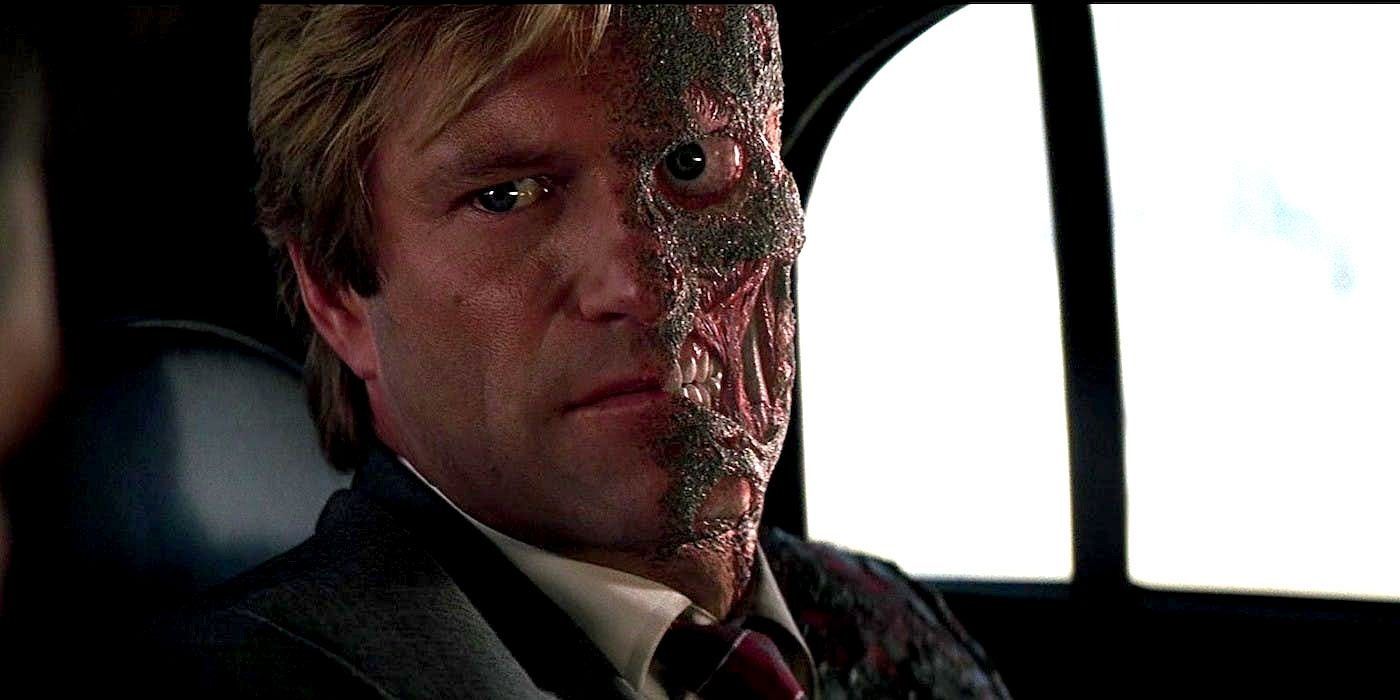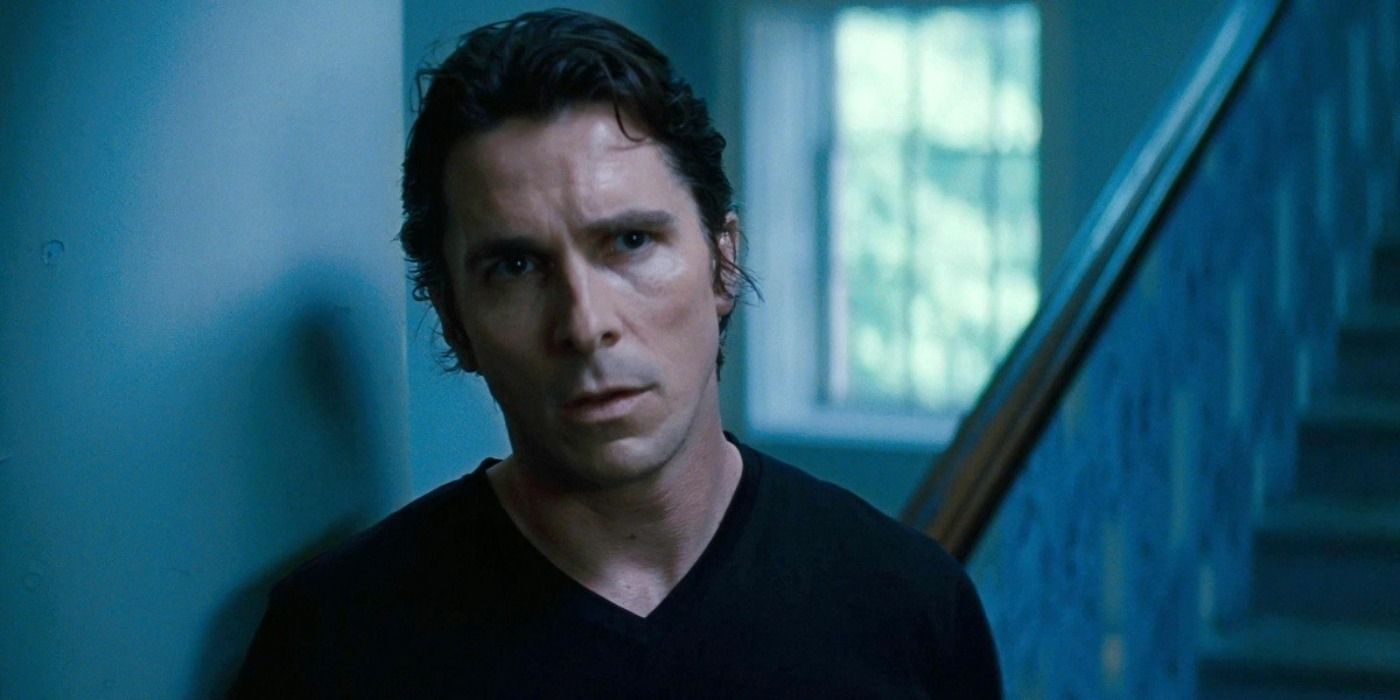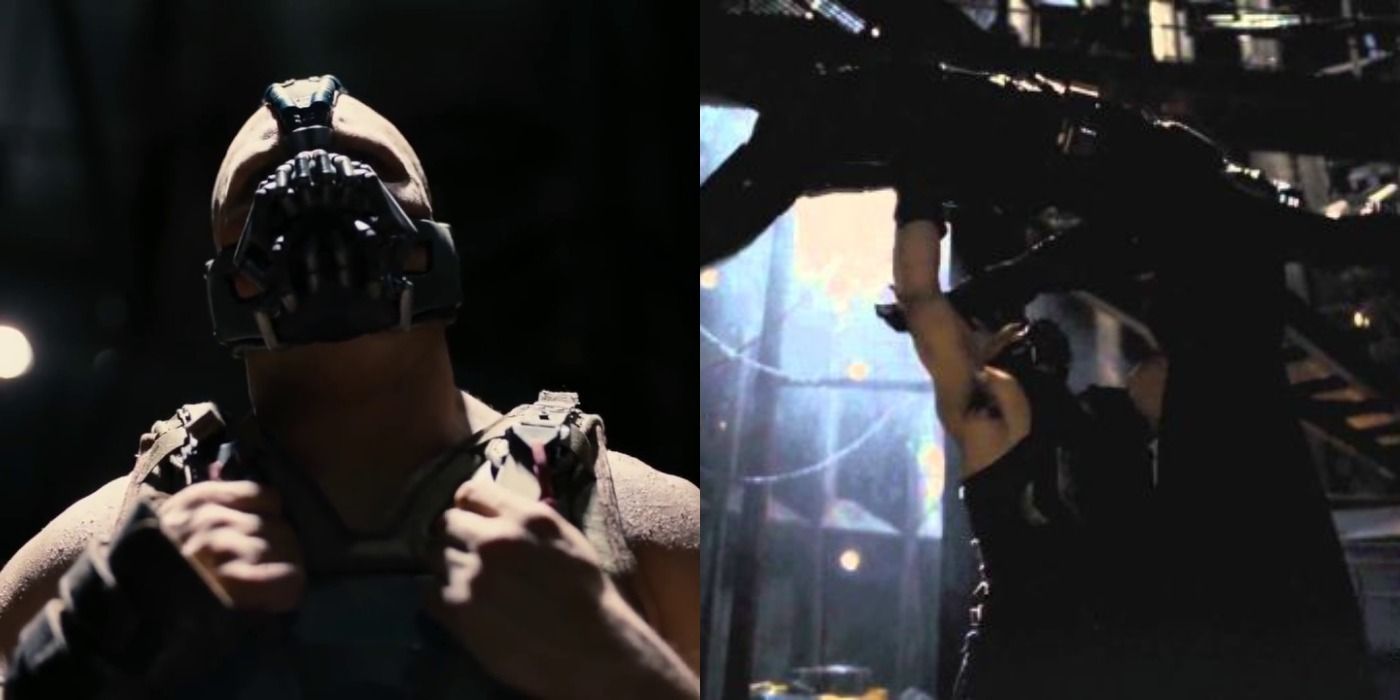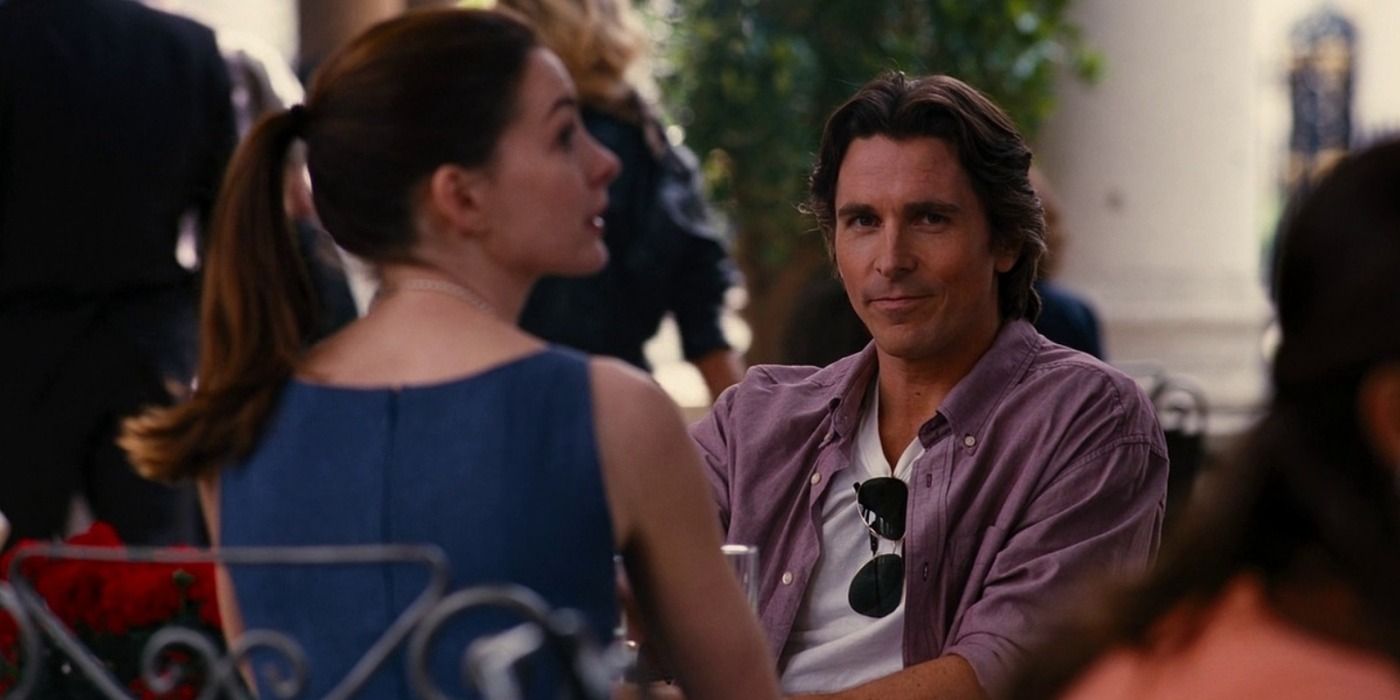Nolan's The Dark Knight Trilogy set a new high standard for Batman in live-action, rescuing the brooding DC superhero from the over-the-top campiness of the mid-late 1990s. It returned the character to more grounded roots, with 2008's The Dark Knight largely agreed upon as reaching the peak of Batman in live-action.
However, while that may be the critical consensus, all three movies brought something important to the table for the hero. From a well-executed modernization of the character's origins to blending the superhero genre with gritty crime-noir, each movie captured a piece of Batman's acclaimed comic book essence.
Batman Begins:
A Creative, Engaging Origin Story
Origin stories have become a dime a dozen when it comes to superhero media. Fans have generally grown tired of retreading all-too-familiar ground before getting to the substance of the hero's story, but Batman Begins worked in Bruce Wayne's origins cleverly.
Instead of starting from Bruce's childhood and working its way into adulthood, the story interweaves his origins in flashbacks as they became relevant in the "present-day." It was a seamless way of showing his beginnings while maintaining a brisk pace, as well as taking influence from Batman's best comic book origin -- Year One.
Returning Live-Action Batman To Noir Roots
The most immediate difference in this reboot from the most recent live-action movies was the tone. Batman Forever and Batman & Robin steered heavily into the 1960s-era camp from the Adam West days, and while those helped character's prominence for the time, it was tired.
Batman Begins took the character back to the days of the late Dennis O'Neal's resuscitation of the Dark Knight in the early 1970s to Frank Miller's aforementioned seminal origin story. The grounded, grittier interpretation of Batman saved the superhero's live-action reputation.
Balancing Grittiness With A Touch Of Comic Book Camp
While the darker approach was praised all around, Christopher Nolan did manage to balance a slight degree of comic book camp in Batman Begins in particular.
Comic books, though a great medium to reach out to any age bracket, have an inherent and wonderful sense of childlike whimsy to them. Fun moments like Christian Bale's "I'm Batman" line to Liam Neeson's excellent iteration of Ra's al Ghul becoming almost cartoonishly villainous by the final act are great examples of how much campiness a modern live-action Batman movie should have.
The Dark Knight:
Heath Ledger's Timeless Joker
The Dark Knight broke new ground still for the superhero genre theatrically, and one of the highlights was Heath Ledger's Oscar-winning performance as the Joker. It's debatably the best portrayal of the Clown Prince of Crime in live-action, though Joaquin Phoenix's performance was also praised -- and earned an Oscar as well.
Ledger's mannerisms, voice, and erratic behavior as the supervillain were thoroughly engrossing throughout The Dark Knight and made for a suitably heated dynamic with Bale's Batman. To this day, Batman's interrogation of the Joker is one of the best scenes from The Dark Knight Trilogy overall, with the tension and unpredictability palpable through the screen.
A Superhero-Themed Crime Drama
If each of Nolan's movies were to be given a category, Begins was the most like a comic book, Knight was the crime-drama, with Rises being a war movie. Aside from The Dark Knight drawing from several comic book influences, it also seemed to pay homage to movies like Michael Mann's Heat and Martin Scorcese's The Departed.
More than any other of the hero's live-action movies -- until at least Matt Reeves' The Batman hits theaters -- The Dark Knight felt the most like a tightly-scaled crime epic. Especially with Heat, Batman and Joker's roles mirror Al Pacino's Lieutenant Hanna and Robert DeNiro's Neil McCauley.
The Fall Of Harvey Dent
Ledger's Joker was undoubtedly pivotal to The Dark Knight, but Aaron Eckhart's fantastic portrayal of Harvey Dent/Two-Face was the most important piece of the story's chessboard.
The entire conflict revolved around who would "win" Harvey over to their side -- Batman and Gordon, or the Joker -- and his meteoric rise as Gotham City's incorruptible White Knight to tragic fall from grace as the vengeful Two-Face was a masterfully orchestrated tragedy. This dark, downward spiral of the character was a worthy rendition of the acclaimed The Long Halloween story arc and one of Batman's greatest comic book villains.
The Dark Knight Rises:
Bringing Bruce Wayne's Ghosts Back To Haunt Him
Every live-action Batman movie has admittedly failed to perfectly present the Caped Crusader's staunch rules against killing, but The Dark Knight Rises manages to make this into a fascinating core plot point. This iteration of Bruce Wayne tries to uphold and enforce this rule, though ends up failing due to a moment of ego or extreme circumstances.
By the time Rises gets into the meat of its story, Bruce's ghosts come back to haunt him. Batman refusing to save Ra's the second time led to the rise of the terrorist known as Bane and his vengeance-ridden daughter Talia. Meanwhile, the hero resorting to tackling Two-Face off a ledge to save Gordon's son and becoming a false scapegoat was eventually unraveled for the lie that it was.
Tom Hardy's Bane & Breaking The Batman
Though following up Ledger's performance as the Joker would always be a near-impossible task, Tom Hardy's version of Bane was incredibly menacing in his own right. The way the supervillain carried himself with such confidence and overwhelming intimidation was aptly conveyed to the point where the mask couldn't stop Hardy.
Likewise, Bane "breaking" the Batman was not just a brilliant comic book reference, but a great way of shocking the audience and giving Bruce a monumental obstacle to overcome. The Dark Knight Rises effectively used Knightfall's premise to create a movie with believably high stakes, even three movies in.
Closing Bruce's Arc On A Well-Earned High Note
A tired comic book trope of decades past is that superheroes ultimately can't have lasting happiness at the end of their story. However, The Dark Knight Rises does a solid job of writing a satisfying and earned bright ending for this Bruce Wayne.
This movie certainly follows up on the key plot points from both previous entries but is more directly a sequel to Batman Begins. Having Ra's al Ghul's demise serving as the backbone for Rises' conflict and tying back to Bruce's origins made his final act of heroism and graceful exit with Selina Kyle feel like a deserved ending to the "hero's journey."
All Three:
A Cohesive Three-Film Story Arc
Even with Rises largely building off of Batman Begins, all three movies come together to become a cohesive story and character arc for Bruce Wayne. Begins saw him almost reach a breaking point in nearly murdering Joe Chill, but ultimately being brought back down to earth by Rachel and Alfred to create the symbol of hope to pull Gotham out of its mire.
Meanwhile, The Dark Knight forced Bruce to learn to make the hardest decisions as Batman thanks to Alfred's guidance; to become whatever the city needed him to be, even if that meant being a hated pariah. Finally, The Dark Knight Rises forced Bruce to wake up to reality once again, face the consequences of actions, and triumph in true heroic fashion at the end.

